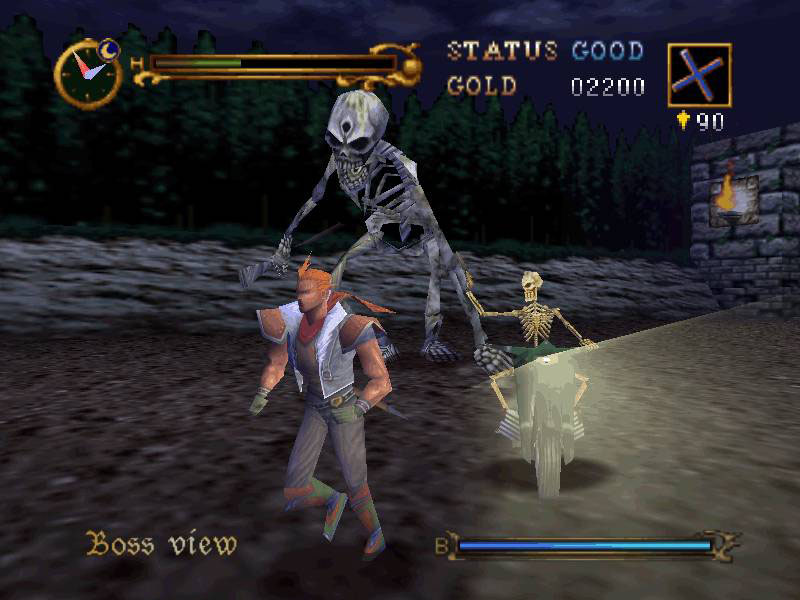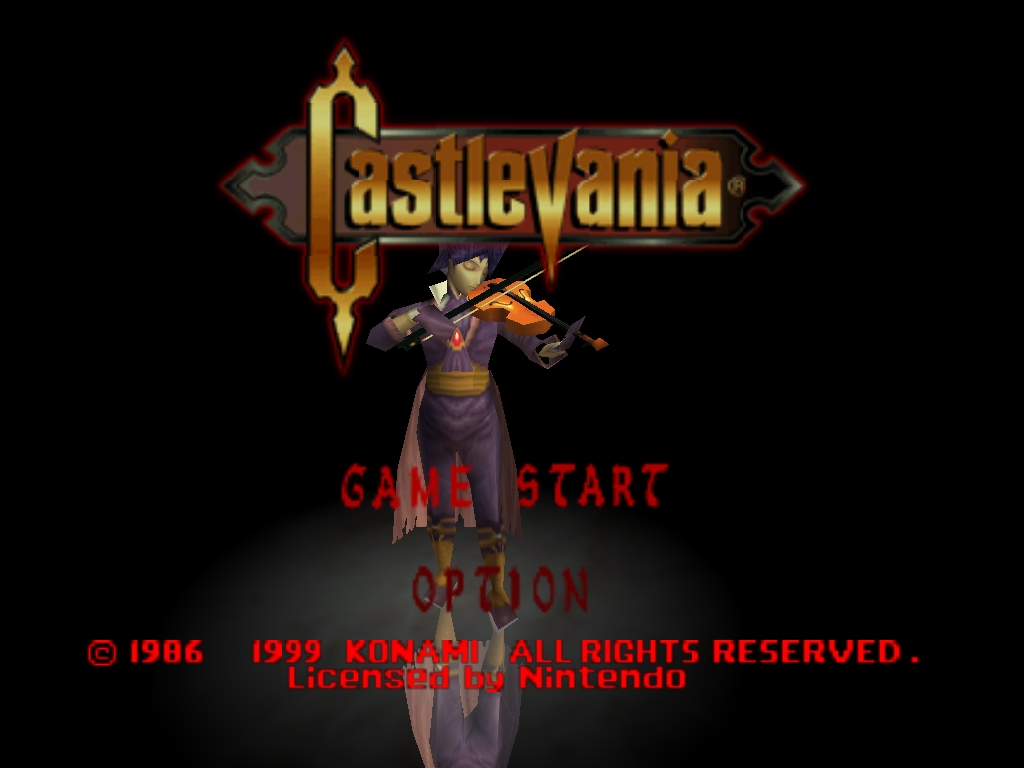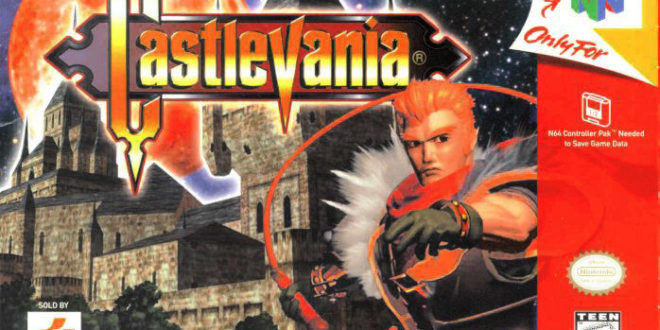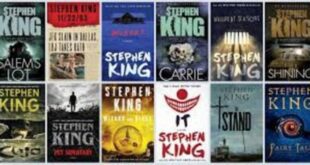Well, folks, it’s happening: we’re less than a year away from when we can officially say that the year 2000 was twenty years ago. For someone raised deep in ’90s nostalgia, that thought terrifies me. It makes me feel old. I still remember a time when floppy discs were all anyone had for storage, when Capri Sun was still transforming kids into mysterious silver goo, and when you could still expect regular issues of Nintendo Power to arrive in the mail at the beginning every month.
I could write a whole article about how Nintendo Power changed my life and made me fall in love with video games, but that’s not what I’m here to rant about. Today, we’re taking a look at a certain lil’ game’s birthday called Castlevania (1999) – not to be confused with Castlevania: Legacy of Darkness, which would come out a whole year later and would feature roughly 200% more werewolves. I remember seeing Reinhardt Schneider’s handsome polygonal mug on that January issue of Nintendo Power and thinking to myself, “Damn, a furry coat? And a whip? AND a skeleton!? Sign me up!”

So, let’s discuss Castlevania, henceforth referred to in this article as Castlevania 64, the oft-overlooked first vampire hunting game for the N64.
DEVELOPMENT
The first rumors of a Castlevania game for the Nintendo 64 was dropped at the April 1997 Tokyo Game Show, roughly seven months after the Nintendo 64 had been officially released. Castlevania, being one of Nintendo’s more popular franchises, was rumored to have a next-gen game come out, and the initial outlook on the game was extremely positive; there was a playable demo at the October 1998 Tokyo Game Show, which continued the hype from the initial announcement the previous year. From the looks of the demo, players could choose one of four different characters, all with a unique play style, to slay demons with. Hype for the game was at an all-time high.

However, behind the scenes were some hard facts: as of the ‘97 Tokyo Game Show, the game was only about 10% complete, according to sources; by February of ‘98, it was still only at 20% completion. Despite early signs of positive feedback from test players, the developers over at KCEK had less than a year to complete the game.
But complete it they did, and Castlevania 64 was released on January 26, 1999, albeit with the number of playable characters cut in half. This ended up being a good choice, however, as the game was able to be released on schedule due to less work needed to complete it.
So, how did it turn out?
GAMEPLAY
With it being the first Castlevania game to explore full three-dimensional gameplay, the game creators had the daunting task of bringing Wallachia out of the two-dimensional wheelhouse that the series had long resided in. This transition ended up being smooth overall, as basic platforming elements (jumping on moving platforms, watching out for crumbling sections, etc.) could exist in the game with little to no issue. The camera, as in most early N64 titles, could be a bit laggy and uncooperative, but not nearly to the degree of other survival horror games like Resident Evil.

Additionally, combat in Castlevania 64 is satisfying and easy to get the hang of, at least for the most part. A neat touch is that you have access to your main and secondary weapons, but also a variety of sub-weapons that fans of the series will recognize, such as axes, crosses, and holy water.
The pacing of the game is the one factor that some players will complain about, especially given that the first level is largely considered one of the flatter and more mundane in the entire franchise. Additionally, given that this is a title from the beginning of 1999, certain animations and graphics on Castlevania 64 haven’t aged too gracefully, with most of the characters’ faces being general shades of noses and eye sockets. However, spending some time with it is well worth it, as the castle levels are much more interesting and encourage exploration. Plus, hang out for a bit with ol’ Reinhardt or Carrie and the graphics ease into your brain a lot nicer than you’d think they would initially.
THE STORY
So while we’re on the subject of plot – what the heck are these characters’ deals, anyway?
Initially, when the game was conceived, the idea was to have four main characters, each with their own interwoven plot arcs that would eventually converge at the end of the game. However, with two of those characters taken out, the story of Castlevania 64 became much more streamlined as well.
Basically, the story of Castlevania 64 is that in 1852, Dracula re-awakened as “a result of mankind’s descent into vice and wickedness.” (The 1800’s, amirite?) The two heroes of the story, Carrie and Reinhardt, embark on a journey to take him out. Simple enough of a premise. The cool thing is that the two characters have multiple splits in their stories, fighting different bosses and seeing different cutscenes, each one having multiple routes to the ending depending on how long it takes them to get to the second chamber in the Castle Keep. Because, yes, this game has its own in-game clock that keeps track of how long you’ve been hacking away at the demon hordes. A pretty cool concept for such an early N64 game!
Suffice it to say, the game itself has enough variances to keep casual players entertained with the plot. For all seasoned vets of Castlevania lore, you should already be expecting the Dracula is awoken/being revived/maybe possessing someone storyline, so you should be well prepared for any repetition of plot at this point in the series’ history.
CONCLUSION
Castlevania 64 is a time capsule of platform gaming in the late 1990s, for better or for worse. Personally, I remember loving this game for its extremely easy to pick up gaming style, even though I wasn’t super impressed with its options compared to other platformers such as Ocarina of Time, which had come out only about three months prior. However, for what it is, Castlevania 64 is a fun romp for platformer gamers and fans of the series, and although it may have fallen to the wayside behind other more influential games, there is still much spooky fun to be had with this one. If you happen upon a copy, blow off the dust and give it a spin! You may find yourself having a surprisingly good time whippin’ up some skeletons under the pixelated moonlight. I know I did.

 PopHorror Let's Get Scared
PopHorror Let's Get Scared




